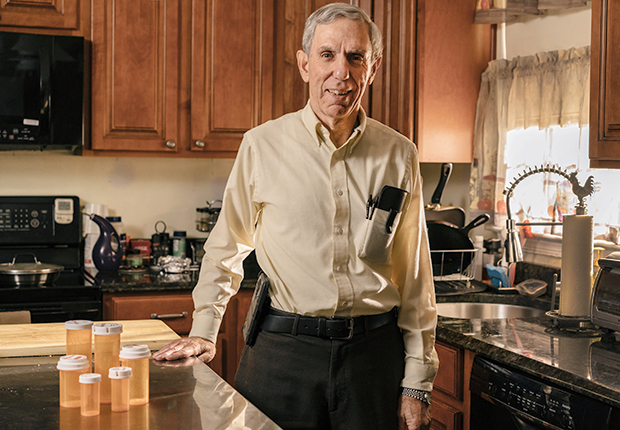AARP Hearing Center

By Michelle R. Davis
During his career as a journalist, Jim Gutman had to keep his opinions to himself. As the vice president and managing editor at a health care news publishing company, he needed to remain objective, staying outside the fray of politics.
But when he retired in 2016, he could move from observer to participant. Gutman said he had long admired AARP, after watching the group’s lobbying efforts concerning Medicare Part D.
“Once I retired, I wanted to be able to do something I might not have been able to do as a journalist,” said Gutman, 69, of Laurel. “I swore to myself that if I had some time after retiring, AARP was the kind of organization I wanted to volunteer for.”
During Maryland’s 2017 General Assembly session, Gutman drew on his background, acting as an advocate for AARP Maryland on issues related to prescription drugs and their cost.
He testified before committees in favor of the Prescription Drug Affordability Initiative. The measure gave the state attorney general’s office authority to issue a restraining order over price gouging for generic drugs and off-patent medications and to impose fines on companies that do it.
Lawmakers passed the bill, and Gov. Larry Hogan (R) allowed it to become law without his signature. Maryland is the first state to enact such legislation.
Gutman relied on his knowledge of health care and his own experiences. As a volunteer Medicare drug prescription counselor for the State Health Insurance Assistance Program, he saw older residents struggle to afford their medications.
One-on-one contacts
When the General Assembly reconvenes Jan. 10, those kinds of experiences will make AARP advocates a huge asset, said Tammy Bresnahan, associate state director of advocacy for AARP Maryland.
“Our advocates have a depth of knowledge that we can tap into,” she said. “When lawmakers hear from someone who lives in their community, it carries a lot more weight.”
AARP Maryland advocates also make personal connections with lawmakers, lending authority to their concerns, Bresnahan said. Volunteers, for example, often attend the meetings of local delegations.
“Our goal is to have our volunteer base establish relationships with local elected officials, so when we’re trying to move forward with our legislative agenda, it’s not just that AARP wants this,” Bresnahan said. “Our advocates already have a rapport and can go to the delegate and say, ‘This is really important.’ ”
Paulette Cheeks, 69, of Windsor Mill, was a fixture at delegation meetings and got to know Del. Jay Jalisi, a Democrat from her home county of Baltimore. Jalisi asked her to testify on a bill he sponsored that would require the county to provide a property tax credit for homeowners 65 and older under certain circumstances.
“I told them, ‘This could be someone in your family who needs this help,’ ” said Cheeks, a former math teacher. “It’s about giving people a better quality of life.”
While that bill did not advance, Cheeks established a relationship with Jalisi and other delegates that she can draw on. When delegates hear from “a real person who has been affected by these issues,” she said, their concerns have more impact.
That’s exactly why Cheeks, a math teacher for 39 years, said she wanted to volunteer with AARP Maryland. “I just feel like it’s me giving back.”
Potential volunteers can contact Bresnahan at 410-895-7613 or tbresnahan@aarp.org.
Michelle R. Davis is a writer living in Silver Spring.































































